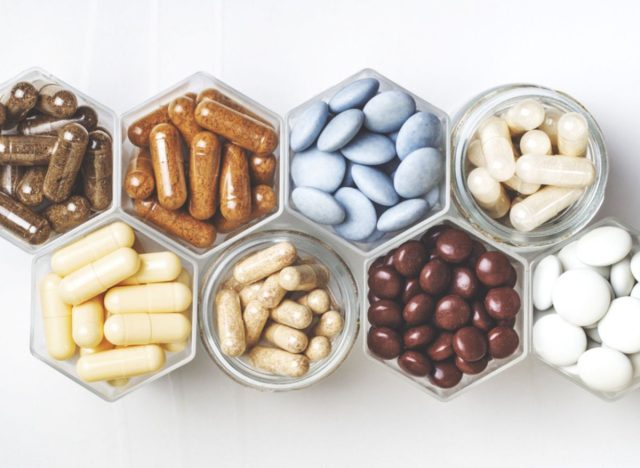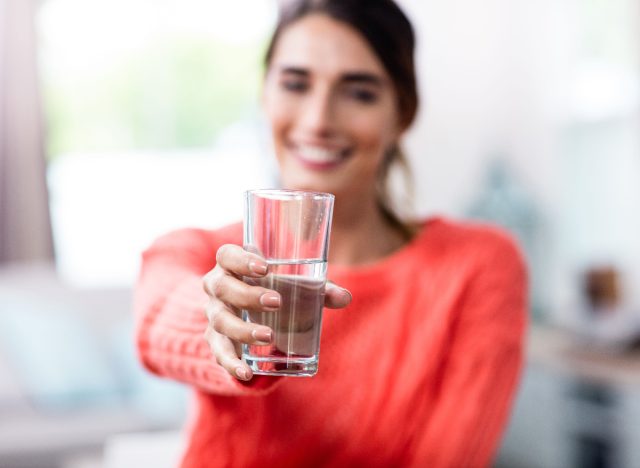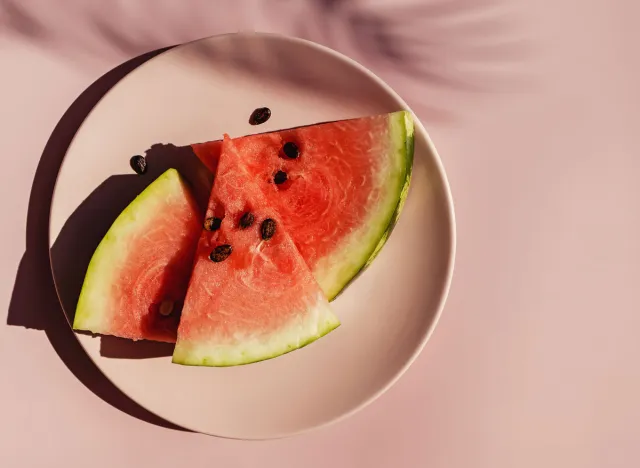As summer approaches and temperatures rise, it’s crucial to keep yourself hydrated. Shockingly, research from the National Institutes of Health (NIH) reveals that a significant 75% of adults in the U.S. are not drinking enough water. While various methods can help you gauge your hydration status, a trending TikTok hack offers a five-second trick to check if you are dehydrated. According to a video shared by @footdocdana on TikTok, this technique is scientifically proven and involves a simple skin pinch test that can assess your hydration levels swiftly.
Dehydration is a common condition that can sneak up on you, leading to symptoms like fatigue, dizziness, dry skin, and headaches. Proper hydration supports various bodily functions, including digestion, circulation, and temperature regulation. When you’re dehydrated, your body struggles to perform these tasks, and more serious health problems can occur over time.
Fortunately, testing your hydration levels using methods like this five-second trick can help you maintain optimal hydration and support good overall health.
How the skin pinch trick to see if you’re dehydrated works:
In the TikTok video, a man pinches the skin on the back of his hand and says, “Squeeze your fingertip right here, and if it goes back down, you’re hydrated.” He tries again, but his skin stays pinched this time instead of snapping back into place, indicating he’s dehydrated.
This five-second skin pinch test, also called the “skin turgor test,” works because well-hydrated skin has better elasticity and snaps back quickly when pinched. While this method isn’t a definitive medical diagnosis, it offers a reasonably accurate indication of your hydration levels.
Dorsey Standish, MS, a neuroscientist, wellness expert, mechanical engineer, and CEO of Mastermind Meditate, tells Eat This, Not That!, “The skin turgor test uses compression to measure skin elasticity. It can give a moderately reliable quick indicator of dehydration, but the reliability of this test can be impacted by age and skin condition. Therefore, it’s not as accurate as other methods such as blood tests or urine specific gravity.”
Certain conditions may affect the skin pinch test’s reliability.

Factors like age, skin elasticity, and medical conditions like edema or skin disorders can affect this test’s reliability. For instance, older adults often have less elastic skin, which may not snap back as quickly even if they’re well-hydrated. Also, conditions that cause swelling can make the skin appear more elastic than it actually is.
Dorsey says, “Certain conditions such as diabetes or skin disorders and taking medications or supplements that act as diuretics [can] change skin elasticity and fluid balance in a way that can skew skin turgor test results and make other assessments a better option.”
Common misconceptions around daily water intake:

One common misconception is the “8×8” rule, which suggests drinking eight 8-ounce glasses of water daily. The amount of water an individual should consume daily is unique and dependent on various factors.
Another myth is that all fluids count equally toward hydration. Water is the best choice for staying hydrated, while caffeinated or sugary drinks can cause dehydration. Listening to your body’s thirst signals and considering your specific circumstances will help you stay hydrated.
“Hydration needs vary from person to person, depending on factors such as activity level, diet, and climate,” Dorsey explains. “Most people actually need more than 64 ounces of water per day. Body signals such as urine color and thirst level can better indicate hydration needs.”
Dorsey adds that another effective strategy for adequate hydration is planning two or three “water breaks” throughout the day. She recommends taking these breaks in conjunction with other daily activities, like lunch or brewing coffee, to optimize your hydration levels.
Other tips for staying hydrated:

Consume foods with a high water content. Staying hydrated involves more than just drinking water. Research shows that eating water-rich foods like fruits and vegetables can help boost your daily fluid intake.
Dorsey says consuming the following beverages and foods can optimize your hydration status:
- Herbal teas
- Non-dairy milks
- Fruits and veggies with high water content, like oranges, watermelon, lettuce, and cucumbers
- Sugar-free electrolyte supplements
Have a “water” routine. Establishing a routine, like drinking water with each meal, can be incredibly helpful. Consider carrying a water bottle throughout the day and setting reminders on your phone or smartwatch to take sips regularly. This can ensure you meet your hydration goals.
Frequently Asked Questions (FAQs)
What are the signs of dehydration?
Some common signs of dehydration include:
- Increased thirst
- Dry mouth and tongue
- Headache
- Dizziness or lightheadedness
- Dark yellow urine
- Infrequent urination
How can I quickly check if I’m dehydrated?
To quickly check if you’re dehydrated, you can perform the skin turgor test. Follow these steps:
- Pinch the skin on the back of your hand or forearm.
- Hold the skin for a few seconds and then release it.
- If the skin takes a long time to return to its normal position or remains slightly tented, it could be a sign of dehydration.
What are the benefits of staying hydrated?
Staying hydrated is essential for your overall health. Some benefits of staying hydrated include:
- Regulating body temperature
- Supporting digestion
- Improving cognitive function
- Helping to maintain healthy skin
- Supporting proper kidney function






